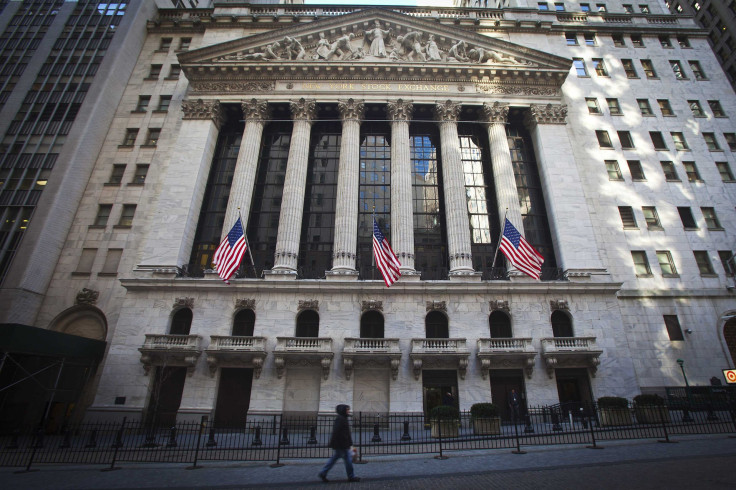Dow Jones Industrial Average Climbs Above 18,000 As Oil Prices Top $60

U.S. stocks opened higher Friday, with the Dow Jones Industrial Average topping the symbolic 18,000 mark in the morning, after oil prices rose above $60 a barrel for the first time in 2015. The move comes a day after all three major U.S. indices closed at their highest level this year.
The blue-chip Dow smashed the 18,000 milestone for the first time on Dec. 23, 2014, after data revealed the U.S. economy grew at its quickest pace in more than a decade in the third quarter.
The Dow, which measures the share prices of 30 large industrial companies, gained 46.84 points, or 0.26 percent, at 18,019.22; the S&P 500 stock index added 5.15 points, or 0.23 percent, at 2,093.33. The Nasdaq Composite rose 13.37 points, or 0.28 percent, at 4,871.21.
The recent rebound in global oil prices has been driven by the sharp drop in the number of rigs drilling and the slew of announcements from major oil companies that are cutting back on investment, says London-based firm Capital Economics.
“The rebound in the price of Brent over the last two weeks supports our view that oil prices will gradually climb back to around $70 per barrel over the medium term, helped on their way by further evidence of reductions in investment. However, we do not expect prices to shoot back to $100 anytime soon,” Tom Pugh, commodities economist at Capital Economics, said in a research note Friday.
Brent crude, the benchmark for global oil prices, added $2.20 to $61.48 a barrel for April 15 delivery on the London ICE Futures Exchange. West Texas Intermediate crude, the benchmark for U.S. oil prices, added $1.54 to $52.75 a barrel for March 15 delivery on the New York Mercantile Exchange.
The global markets also got a boost after the eurozone economy expanded more than expected last quarter, boosted by strong growth in Germany, Europe's largest economy. Gross domestic product in the 18 countries that share the euro, rose 0.3 percent in the fourth quarter over the previous period.
Separate data Friday showed U.S. consumer sentiment fell in February, dropping from an 11-year high. Consumer sentiment, an economic indicator of the overall health of the U.S. economy, fell to 93.6 this month, below the final reading of 98.1 in January, the University of Michigan's preliminary February reading showed Friday. Economists had forecast consumer sentiment would remain at 98.1, according to analysts polled by Thomson Reuters.
Although confidence reversed January’s gains, returning to the December level, the Sentiment Index was still higher than any other time since January 2007.
“Consumer optimism slipped in early February due to renewed concerns over employment and wage growth as well as a diminished outlook for the domestic economy,” Richard Curtin, chief economist at Surveys of Consumers, said in statement Friday. “Low gas prices have especially helped lower income households, although consumers now widely anticipate that gas prices will edge upward during the year ahead.”
© Copyright IBTimes 2024. All rights reserved.












